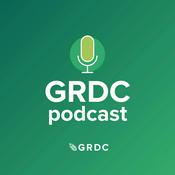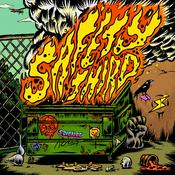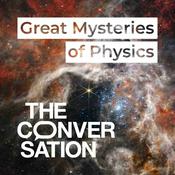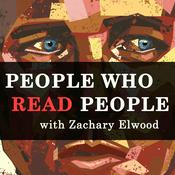36 episodes
- Dr Catherine Hynes brings Neuroscience and Neuropsychology underpinnings to her Clinical work with trauma and dissociation. Lisa and Catherine discuss the impact of trauma on memory, the controversies around repressed memories, recovered memories and false memories, and explore best practice guidelines for therapists working in this space.
www.catherinehynes.net/training/ to learn more about Catherine's training and workshops.
Recommended reading and research in this topic:
Callus, E., Gallina, E., & Fernandez, I. (2024).EMDR: dispelling the false memory creation myth in response to Otgaar et al. (2022a). Frontiers in Psychology, 15, 1366137. doi: 10.3389/fpsyg.2024.1366137
Dalenberg, C. J., Brand, B. L., Gleaves, D. H., Dorahy, M. J., Loewenstein, R. J., Cardeña, E., Spiegel, D. (2012). Evaluation of the evidence for the trauma and fantasy models of dissociation. Psychological Bulletin, 138(3), 550-588.
Freyd, Jennifer (1996). Betrayal Trauma: The Logic of Forgetting Childhood Abuse. Cambridge, MA: Harvard University Press.
Geraerts, E., Schooler, J. W., Merckelbach, H., Jelicic, M., Hauer, B. J. A.,& Ambadar, Z. (2007). The reality of recovered memories: Corroborating continuous and discontinuous memories of childhood sexual abuse. Psychological Science, 18, 564 –568. doi:10.1111/j.1467-9280.2007.01940.x
Goodman-Delahunty, J., Nolan, M. & van Gijn Grosvenor, E. Empirical guidance on the effects of child sexual abuse on memory and complainants’ evidence, Report for the Royal Commission into Institutional Responses to Child Sexual Abuse, 2017.
Houben, S. T. L., Otgaar, H., Roelofs, J., & Merckelbach, H. (2018). Lateral eye movements increase false memory rates. Clinical Psychological Science, 6, 610–616. doi:10.1177/2167702618757658.
Lee, C., de Jongh, A., & Hase, M. (2019). Lateral eye movements,EMDR, and memory changes: A critical commentary on Houben et al. (2018) [Letter]. Clinical Psychological Science, 6, 403–404. doi:10.1177/216770261983039
Loftus, E. (1993) The Reality of Repressed Memories. American Psychologist. 48(5):518-37
Pezdek, K., Finger, K., & Hodge, D. (1997). Planting false childhood memories: The role of event plausibility. Psychological Science, 8(6), 437–441. https://doi.org/10.1111/j.1467-9280.1997.tb00457.
Ross CA, Ridgway J, Neighbors Q, Myron T. Reversal of Amnesia for Trauma in a Sample of Psychiatric Inpatients with Dissociative Identity Disorder and Dissociative Disorder Not Otherwise Specified. J Child Sex Abus. 2022 Jul;31(5):550-561. doi: 10.1080/10538712.2022.2067096. Epub 2022 Apr 19. PMID: 35437119.a
van der Hart, O. & Nijenhuis, E.R.S. (1995) Amnesia for traumatic experiences. Hypnosis 1995; 22:73-86
van der Hart, O. & Nijenhuis, E.R.S. (1999) Bearing Witness to Uncorroborated Trauma: The clinician’s development of reflective belief. Professional Psychology, Research and Practice. Vol 30, Number 1, pp 37-44. - Dr Michael Proeve is a Clinically and Forensically endorsed Australian Psychologist. Dr Lisa Chantler asks Michael why remorse, guilt and shame are common factors in therapeutic issues such as Social Anxiety and Depression, and how clinicians can help.
- Dr Vanessa Spiller explains the history of Fetal Alcohol Spectrum Disorder, offers tools to diagnose FASD and helpful pathways for Clinical Psychologists offering therapy. She explains why it is so easily overlooked in comparison with other commonly co-occurring diagnoses, and reveals FASD's alarmingly high rates of involvement with the criminal justice system.
- Our guest today is Prof Tracey Wade. Dr Lisa Chantler speaks to Prof. Wade about the State of the Art and Science of Clinical Perfectionism. They discuss how it is defined, how therapists can identify traits of Clinical Perfectionism in the clinic, the history of the disorder, about the most recent CBT treatments, and what resources are available for clinicians.
- Emeritus Professor Don Carveth draws on psychological wisdom from religion, philosophy, literature, as well as from empirical research and clinical practice, to understand how guilt influences our lives.
Aaron Neaves explores the themes of Don’s latest book “Guilt: A Contemporary Introduction” in a wide ranging, thoughtful conversation.
Together they discuss if there a biological basis for conscience; the distinction between persecutory guilt and reparative guilt; if psychopaths and narcissists have a conscience; if psychoanalysis can claim to be morally neutral; how understanding guilt changes our practice of trauma informed care, and much much more.
More Science podcasts
Trending Science podcasts
About Clinically Thinking
A podcast by Clinical Psychologists, for Clinical Psychologists. Deep-dive conversations with clinicians and academics at the forefront of their fields. A great resource for all clinicians from graduates to gurus.
Follow us on Facebook at: https://www.facebook.com/clinicallythinking
DISCLAIMER: Discussions are the personal opinions of the participants and do not represent therapeutic or professional advice. You should seek your own independent professional and/or legal advice pertinent to your individual case and circumstances.
Podcast websiteListen to Clinically Thinking, Science Friction and many other podcasts from around the world with the radio.net app
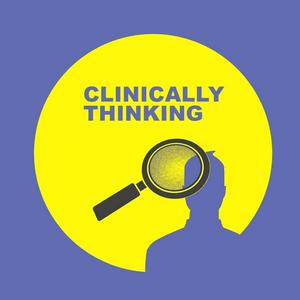
Get the free radio.net app
- Stations and podcasts to bookmark
- Stream via Wi-Fi or Bluetooth
- Supports Carplay & Android Auto
- Many other app features
Get the free radio.net app
- Stations and podcasts to bookmark
- Stream via Wi-Fi or Bluetooth
- Supports Carplay & Android Auto
- Many other app features


Clinically Thinking
Scan code,
download the app,
start listening.
download the app,
start listening.


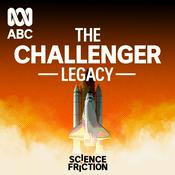

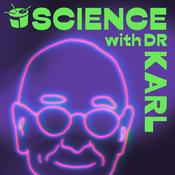








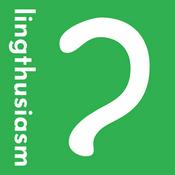
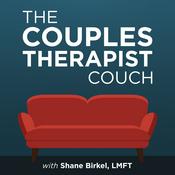


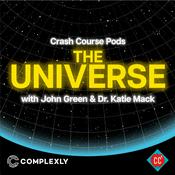
![Podcast Cosmosis [Formerly The UFO Rabbit Hole]](https://au.radio.net/podcast-images/175/the-ufo-rabbit-hole-podcast.jpeg?version=c4cfeed14331265219e0263fd62be755644a8cf4)
